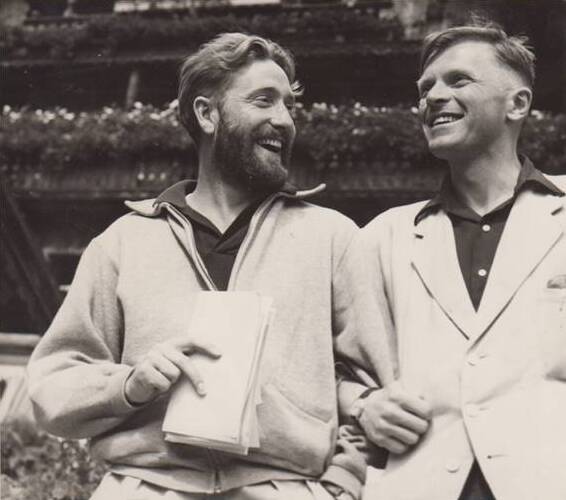|
Strong Program
The strong programme or strong sociology is a variety of the sociology of scientific knowledge (SSK) particularly associated with David Bloor, Barry Barnes, Harry Collins, Donald A. MacKenzie, and John Henry. The strong programme's influence on science and technology studies is credited as being unparalleled ( Latour 1999). The largely Edinburgh-based school of thought aims to illustrate how the existence of a scientific community, bound together by allegiance to a shared paradigm, is a prerequisite for normal scientific activity. The strong programme is a reaction against "weak" sociologies of science, which restricted the application of sociology to "failed" or "false" theories, such as phrenology. Failed theories would be explained by citing the researchers' biases, such as covert political or economic interests. Sociology would be only marginally relevant to successful theories, which succeeded because they had revealed a fact of nature. The strong programme proposed that bo ... [...More Info...] [...Related Items...] OR: [Wikipedia] [Google] [Baidu] |
Sociology Of Scientific Knowledge
The sociology of scientific knowledge (SSK) is the study of science as a social activity, especially dealing with "the social conditions and effects of science, and with the social structures and processes of scientific activity." The sociology of scientific ignorance (SSI) is complementary to the sociology of scientific knowledge. For comparison, the sociology of knowledge studies the impact of human knowledge and the prevailing ideas on societies and relations between knowledge and the social context within which it arises. Sociologists of scientific knowledge study the development of a scientific field and attempt to identify points of contingency or interpretative flexibility where ambiguities are present. Such variations may be linked to a variety of political, historical, cultural or economic factors. Crucially, the field does not set out to promote relativism or to attack the scientific project; the objective of the researcher is to explain why one interpretation rather t ... [...More Info...] [...Related Items...] OR: [Wikipedia] [Google] [Baidu] |
Luce Irigaray
Luce Irigaray (; born 3 May 1930) is a Belgian-born French feminist, philosopher, linguist, psycholinguist, psychoanalyst, and cultural theorist who examines the uses and misuses of language in relation to women. Irigaray's first and most well known book, published in 1974, was ''Speculum of the Other Woman'' (1974), which analyzes the texts of Freud, Hegel, Plato, Aristotle, Descartes, and Kant through the lens of phallocentrism. Irigaray is the author of works analyzing many thinkers, including ''This Sex Which Is Not One'' (1977), which discusses Lacan's work as well as political economy; ''Elemental Passions'' (1982) can be read as a response to Merleau‐Ponty's article “The Intertwining—The Chiasm” in ''The Visible and the Invisible'', and in ''The Forgetting of Air in Martin Heidegger'' (1999), Irigaray critiques Heidegger's emphasis on the element of earth as the ground of life and speech and his "oblivion" or forgetting of air. Irigaray employs three ... [...More Info...] [...Related Items...] OR: [Wikipedia] [Google] [Baidu] |
Jacques Lacan
Jacques Marie Émile Lacan (, ; ; 13 April 1901 – 9 September 1981) was a French psychoanalyst and psychiatrist. Described as "the most controversial psycho-analyst since Sigmund Freud, Freud", Lacan gave The Seminars of Jacques Lacan, yearly seminars in Paris, from 1953 to 1981, and published papers that were later collected in the book ''Écrits''. Transcriptions of his seminars, given between 1954 and 1976, were also published. His work made a significant impact on continental philosophy and cultural theory in areas such as post-structuralism, critical theory, feminist theory and film theory, as well as on the practice of psychoanalysis itself. Lacan took up and discussed the whole range of Freudian concepts, emphasizing the philosophical dimension of Freud's thought and applying concepts derived from structuralism in linguistics and anthropology to its development in his own work, which he would further augment by employing formulae from predicate logic and Topological s ... [...More Info...] [...Related Items...] OR: [Wikipedia] [Google] [Baidu] |
Paul Feyerabend
Paul Karl Feyerabend (; ; January 13, 1924 – February 11, 1994) was an Austrian philosopher best known for his work in the philosophy of science. He started his academic career as lecturer in the philosophy of science at the University of Bristol (1955–1958); afterwards, he moved to the University of California, Berkeley, where he taught for three decades (1958–1989). At various points in his life, he held joint appointments at the University College London (1967–1970), the London School of Economics (1967), the FU Berlin (1968), Yale University (1969), the University of Auckland (1972, 1975), the University of Sussex (1974), and, finally, the ETH Zurich (1980–1990). He gave lectures and lecture series at the University of Minnesota (1958–1962), Stanford University (1967), the University of Kassel (1977) and the University of Trento (1992). Feyerabend's most famous work is ''Against Method'' (1975), wherein he argued that there are no universally valid methodological ... [...More Info...] [...Related Items...] OR: [Wikipedia] [Google] [Baidu] |
Social Constructionism
Social constructionism is a term used in sociology, social ontology, and communication theory. The term can serve somewhat different functions in each field; however, the foundation of this Conceptual framework, theoretical framework suggests various facets of social reality—such as concepts, beliefs, Social norm, norms, and Value (ethics and social sciences), values—are formed through continuous interactions and negotiations among society's members, rather than Empirical research, empirical observation of Reality, physical reality. The theory of social constructionism posits that much of what individuals perceive as 'reality' is actually the outcome of a dynamic process of construction influenced by Convention (norm), social conventions and Social structure, structures. Unlike phenomena that are innately determined or biologically predetermined, these social constructs are collectively formulated, sustained, and shaped by the social environment, social contexts in which t ... [...More Info...] [...Related Items...] OR: [Wikipedia] [Google] [Baidu] |
Fashionable Nonsense
''Fashionable Nonsense: Postmodern Intellectuals' Abuse of Science'' (UK: ''Intellectual Impostures''), first published in French in 1997 as , is a book by physicists Alan Sokal and Jean Bricmont. As part of the so-called science wars, Sokal and Bricmont criticize postmodernism in academia for the misuse of scientific and mathematical concepts in postmodern writing. The book was published in English in 1998, with revisions to the original French edition for greater relevance to debates in the English-speaking world. According to some reports, the response within the humanities was "polarized"; critics of Sokal and Bricmont charged that they lacked understanding of the writing they were scrutinizing. By contrast, responses from the scientific community were more supportive. Similar to the subject matter of the book, Sokal is best known for his eponymous 1996 hoaxing affair, whereby he was able to get published a deliberately absurd article that he submitted to ''Social Text'', ... [...More Info...] [...Related Items...] OR: [Wikipedia] [Google] [Baidu] |
Jean Bricmont
Jean Bricmont (; born 12 April 1952) is a Belgian theoretical physicist and philosopher of science. Professor at the Catholic University of Louvain (UCLouvain), he works on renormalization group and nonlinear differential equations. Since 2004, Bricmont is a member of the Division of Sciences of the Royal Academy of Belgium. Bricmont claims he is a rationalist. He has criticized postmodernist views of science along with Alan Sokal, with whom he wrote '' Fashionable Nonsense'' (1997). He has also criticized imperialism and defended freedom of expression, adopting a position on the issue similar to that of Noam Chomsky. Jean Bricmont was president of the Association française pour l'information scientifique from 2001 to 2006. Books * ''Impérialisme humanitaire'' (2005) published in English as ''Humanitarian Imperialism'', 2006 * Preface to ''L'Atlas alternatif'' – Frédéric Delorca (ed), Pantin, Temps des Cerises, 2006 * ''Raison contre pouvoir. Le Pari de Pascal'' J ... [...More Info...] [...Related Items...] OR: [Wikipedia] [Google] [Baidu] |
Alan Sokal
Alan David Sokal ( ; born January 24, 1955) is an American professor of mathematics at University College London and professor emeritus of physics at New York University. He works with statistical mechanics and combinatorics. Sokal is a critic of postmodernism, and caused the Sokal affair in 1996 when his deliberately nonsensical paper was published by Duke University Press's ''Social Text''. He also co-authored a paper criticizing the critical positivity ratio concept in positive psychology. Academic career Sokal received his Bachelor of Arts degree from Harvard College in 1976 and his PhD from Princeton University in 1981. He was advised by the physicist Arthur Wightman. During the summers of 1986, 1987, and 1988, Sokal taught mathematics at the National Autonomous University of Nicaragua, when the Sandinistas controlled the elected government. Research interests Sokal's research involves mathematical physics and combinatorics. In particular, he studies the interplay betw ... [...More Info...] [...Related Items...] OR: [Wikipedia] [Google] [Baidu] |
Whig History
Whig history (or Whig historiography) is an approach to historiography that presents history as a journey from an oppressive and benighted past to a "glorious present". The present described is generally one with modern forms of liberal democracy and constitutional monarchy: it was originally a term for the metanarratives praising Britain's adoption of constitutional monarchy and the historical development of the Westminster system. The term has also been applied widely in historical disciplines outside of British history (e.g. in the history of science) to describe "any subjection of history to what is essentially a teleological view of the historical process". When the term is used in contexts other than British history, "whig history" (lowercase) is preferred. In the British context, whig historians emphasize the rise of constitutional government, personal freedoms and scientific progress. The term is often applied generally (and pejoratively) to histories that present the ... [...More Info...] [...Related Items...] OR: [Wikipedia] [Google] [Baidu] |
Truth
Truth or verity is the Property (philosophy), property of being in accord with fact or reality.Merriam-Webster's Online Dictionarytruth, 2005 In everyday language, it is typically ascribed to things that aim to represent reality or otherwise correspond to it, such as beliefs, propositions, and declarative sentences. True statements are usually held to be the opposite of false statement, false statements. The concept of truth is discussed and debated in various contexts, including philosophy, art, theology, law, and science. Most human activities depend upon the concept, where its nature as a concept is assumed rather than being a subject of discussion, including journalism and everyday life. Some philosophers view the concept of truth as basic, and unable to be explained in any terms that are more easily understood than the concept of truth itself. Most commonly, truth is viewed as the correspondence of language or thought to a mind-independent world. This is called the correspon ... [...More Info...] [...Related Items...] OR: [Wikipedia] [Google] [Baidu] |
Relativism
Relativism is a family of philosophical views which deny claims to absolute objectivity within a particular domain and assert that valuations in that domain are relative to the perspective of an observer or the context in which they are assessed. There are many different forms of relativism, with a great deal of variation in scope and differing degrees of controversy among them. ''Moral relativism'' encompasses the differences in moral judgments among people and cultures. '' Epistemic relativism'' holds that there are no absolute principles regarding normative belief, justification, or rationality, and that there are only relative ones. '' Alethic relativism'' (also factual relativism) is the doctrine that there are no absolute truths, i.e., that truth is always relative to some particular frame of reference, such as a language or a culture (cultural relativism), while linguistic relativism asserts that a language's structures influence a speaker's perceptions. Some forms of ... [...More Info...] [...Related Items...] OR: [Wikipedia] [Google] [Baidu] |


